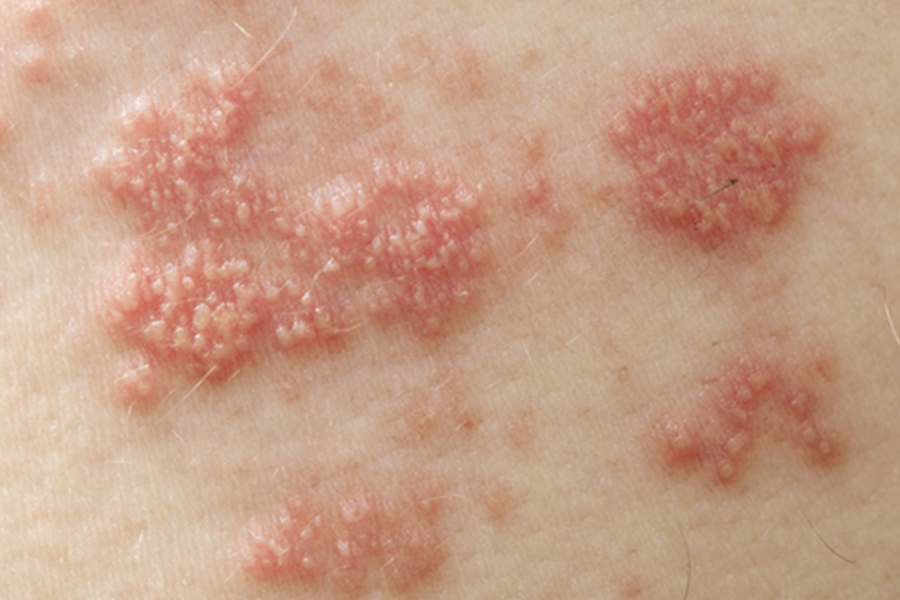Shingles, also known as Herpes Zoster or Varicella-Zoster virus, is a viral infection causing painful lesions on the skin resembling small tubers.
Typically, Shingles emerges between 60 to 70 years old or following an acute febrile illness, shingles can cause discomfort and complications if not addressed promptly.
Causes and Transmission:
Shingles results from the reactivation of the varicella-zoster virus, the same virus responsible for chickenpox. After an initial infection, the virus remains dormant within the nervous system and may reactivate later in life, especially under conditions of stress, fatigue, or weakened immunity. Shingles are highly contagious, spreading through direct contact with the fluid from the blisters or through airborne particles when coughing or sneezing.
Symptoms and Stages:
The primary symptom of shingles is localised pain, often described as burning or throbbing, preceding the appearance of a rash. The rash typically manifests as a single stripe of red, itchy blisters on one side of the body and lasts for one to three weeks. Though fever is uncommon, some patients may experience severe forms of shingles with complications like postherpetic neuralgia or ophthalmic involvement.
Treatment and Management:
While shingles typically resolve within two weeks, several strategies can alleviate symptoms and expedite recovery. Pain management techniques such as applying ice packs and staying hydrated can help reduce discomfort. Adequate rest is crucial for supporting the immune system’s response. Moreover, antiviral medications like acyclovir, valacyclovir, and famciclovir can lessen the severity and duration of symptoms, reducing the risk of complications.
Prevention:
Vaccination is a key preventive measure against shingles, especially for individuals aged 50 or older and those with weakened immune systems. The two available vaccines, Zostavax and Shingrix, offer protection against shingles and its complications, including postherpetic neuralgia. Consultation with a healthcare provider is essential to determine the suitability and timing of vaccination.
Conclusion:
Shingles, caused by the varicella-zoster virus, presents as painful skin lesions and can lead to complications if left untreated. Prompt recognition of symptoms and initiation of treatment are crucial for managing the condition effectively. Additionally, vaccination and adopting preventive measures can significantly reduce the risk of shingles and its associated complications, enhancing overall well-being and quality of life. If you suspect you may have shingles or require vaccination, consult with your healthcare provider for personalised guidance and care.
Roselands Doctors is a Medical Centre located in Roselands Shopping Centre

